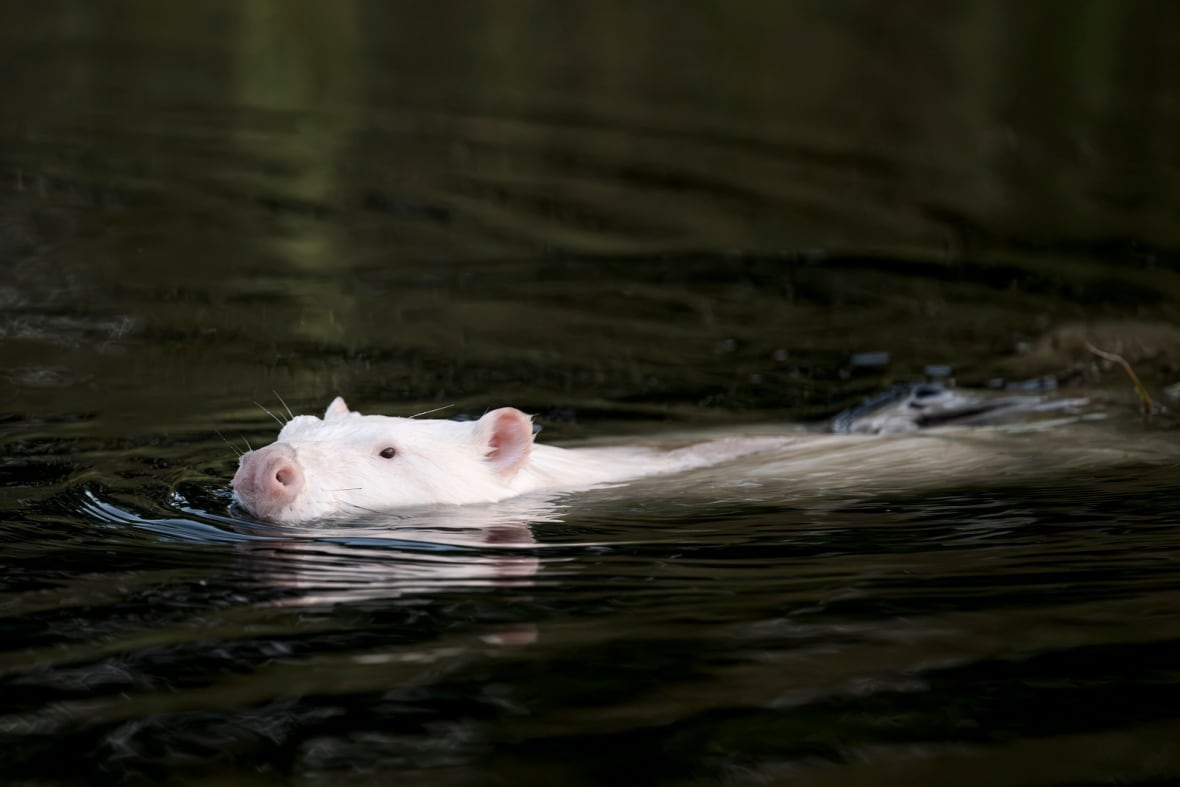On a river near Perth, Ont., a boatload of wildlife photographers silently stalked their quarry on a recent fall evening.
With an electric trolling motor providing propulsion, the water remained millpond-flat as they glided upstream. But then a splash rang out like a shot as their target’s tail slapped the water and the creature dove beneath the surface.
The mythical white beaver had smelled them.
Ottawa photographer Dennis Jackson had never expected to see such a rare creature, despite a lifetime spent capturing images of wildlife.
After spotting the white beaver on a boat trip with his neighbour a few weeks back, Jackson was eager to return to the river with pre-eminent Canadian naturalist Michael Runtz, his wife Britta Runz, who is also a professional photographer, and a CBC reporter.
Beyond hoping for another sighting, Jackson wanted to answer a question: Was this beaver an albino — which would be an unlikely survival story given that most albino animals are nearly blind — or leucistic, a genetic condition that causes a partial loss of pigmentation?
The white beaver had appeared again at dusk, but after smelling the humans it was not clear if it would stick around to answer the question.

As the photographers waited with bated breath, the white beaver glided past the boat underwater, its pale-coloured tail flashing, before surfacing in a patch of reeds. The creature then climbed on land to preen its coat, revealing a patch of dark fur on its front left paw, and eyes which were clearly dark.
“With true albinism, you can’t produce any dark pigmentation, so the eyes are always pink, so I would say that’s a leucistic beaver,” Runtz concluded.
The recently retired Carleton University professor was delighted by the sighting.
“To see a totally white beaver with dark eyes and a dark foot, that’s incredible!”
Even better, they had the photographs to prove it.
“I’m very happy just seeing it, if I didn’t get any photographs I’d be almost equally as happy. But I must admit I am a little happier that we were successful in getting pictures, too,” Runtz said.
Like other wild creatures, beavers occasionally produce offspring with colour mutations, but lighter coats can make them more visible to prey.

White beavers are unusual enough that the Canadian Museum of Nature holds in its collection a leucistic beaver pelt that was collected in Rainy River, Ont., 1918.
Dominique Fauteux, a research scientist at the museum and a specialist in mammalogy, says the rarity of white beavers suggests that in evolutionary terms it has not been a beneficial mutation.
“Over millions of years that kind of mutation, that genetic mutation, hasn’t become very common,” he told CBC. “The pressure for evolution is not very strong to keep that gene in the gene pool.”
For Jackson, the scientific impact of the sighting was less important than its uniqueness.
“That is totally one of the coolest things that I’ve seen,” he declared as he steered the boat toward home.






